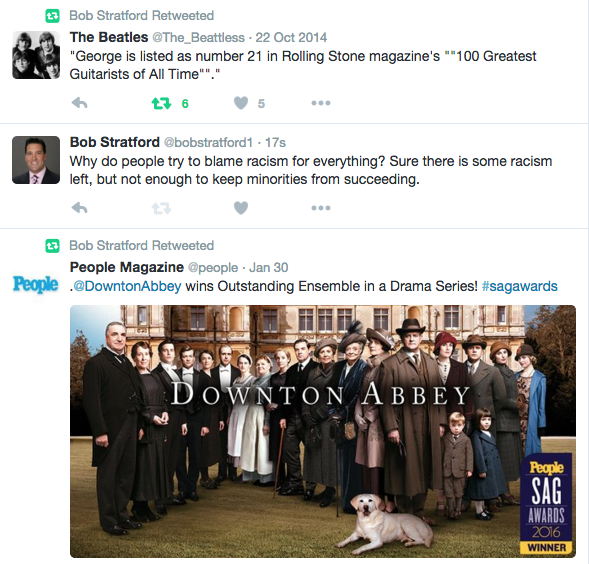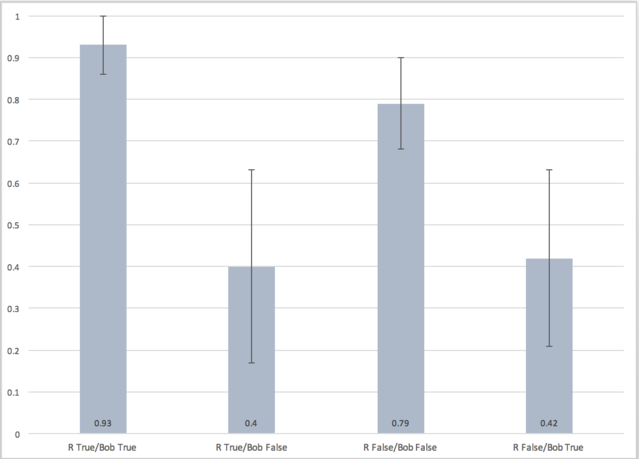Bias
Dueling Facts and Social Disdain
Can we work with someone who perceives different facts?
Posted April 12, 2019
“He who denies either my moral judgments or my version of the facts is to me perverse, alien, dangerous.” —Walter Lippmann
What happens when we interact with people who hold different perceptions of facts? According to recent studies, it isn’t pretty. Tolerance has never been considered the prime virtue of the Right (values like patriotism, morality, and self-reliance have held that distinction). But the Left has upheld tolerance as a core value. Will conservatives tolerate those who dispute their factual perceptions? Perhaps more interestingly, will liberals tolerate those who see reality differently? Or is liberal tolerance for morality, but not for reality?
We conducted a series of experiments on how citizens react when they encounter others who dispute their perceptions. We suspected that the recognition of dueling perceptions leads to social disdain and distrust. Recent studies of Facebook suggest that people are quick to de-friend those who disagree with their ideology. But what about their facts? And what about at the workplace? Are we willing to work next to someone who holds different perceptions, or are we unwilling to be around them? Our experiment combined elements of work (the last realm in which many Americans regularly interact with others who are quite different from themselves) and social media (the realm in which we judge people from afar).
We invented a persona—Bob Stratford—and had him offer factual statements on Twitter. The experiment began with this question:
“Imagine you can choose a work partner for a long-term project that will require a lot of interaction. One of your options is Bob Stratford, a guy at work you haven’t met. A snapshot of his Twitter page appears below. Please examine it for a few moments and think about whether you want to work with him.”
Bob then said various things indicating his perceptions of climate change, racism, the effects of raising the minimum wage, and the influence of immigration on the economy. For example, in regard to racism, participants in the experiment saw either:

Or:

We then asked, “To what degree would you favor/oppose working with Mr. Stratford?”
Would people willingly work with someone who held opposing perceptions of reality? The brief answer is No.

Respondents who thought that the statement, “Racism still has a powerful influence over whether people succeed” is true were not very interested in working with someone who suggested on Twitter that it was false. And those who thought the statement was false were not enthusiastic about sharing workspace with someone who seems to think it is true. As illustrated in the figure above, when both the respondent (R) and Bob thought racism was True, 93 percent wanted to work with Bob. But when Bob thought racism was no longer influential, that rate dropped to 40 percent. Among those who thought racism was not influential, 79 percent were fine with working with Bob when he agreed. But only 42 percent wanted to work with Bob when he saw racism as consequential.
The same patterns appeared for climate change, minimum wage, and especially immigration. Willingness to work with Bob went from 95 percent when conservatives heard Bob agree that undocumented immigrants hurt the economy, but dropped to 41 percent when they heard Bob suggest that immigrants enhanced the economy. And among those who believe that undocumented immigrants enhance the economy, the willingness to work with Bob went from 98 percent when he agreed to 14 percent when he disagreed.
Disagreement also led people to see others as more stupid and less trustworthy.
Bob, Bob, Bob. Why do you say these things in your Bobbish way? Will I engage you in dialogue? Perhaps consider your views about the reality of climate change, or racism, or immigration? Will I even work next to you if I can avoid it? No, Bob, I won’t. Tolerance is for morality, not reality.


